In today's era, customers are becoming increasingly demanding in their service choices, requiring quick, professional, and personalized service. AI chatbots, with their automatic and intelligent interaction capabilities, have become invaluable assistants for businesses in enhancing customer experience. This advanced technology has greatly enhanced customer service and brought stability to the customer management department (CRM).
In this blog, we will highlight how AI chatbot technology transforms CRM software into an excellent solution for customer service management.
1. What is an AI Chat Bot?
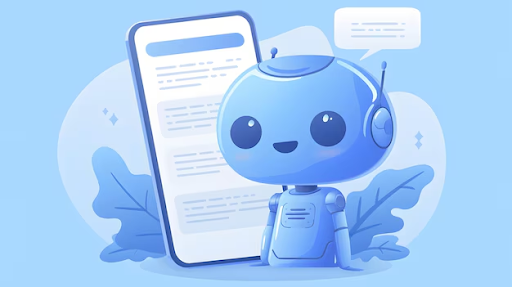
AI Chatbot is a computer program designed to simulate conversation with humans. It uses artificial intelligence (AI) to understand and automatically respond to users' questions and requests. Chatbot can operate on various platforms such as websites, mobile applications, social media, and even smart devices.
2. The main features of the AI chatbot
Automatic interaction
The chatbot has the ability to automatically answer user questions and requests anytime, anywhere, without human intervention, ensuring that customers are always supported. Furthermore, the Chatbot can interact with multiple users simultaneously, increasing work efficiency.
Natural language processing (Natural Language Processing - NLP)
Based on the context of the conversation, the AI Chatbot helps make the answers more accurate and appropriate by being able to understand complex questions and requests, even open-ended questions, thanks to natural language processing.
Machine learning (Machine Learning)
Thanks to machine learning capabilities, AI chatbots are becoming increasingly intelligent and efficient. Chatbot continuously learns from conversations with users, thereby improving its ability to understand and respond to questions. The chatbot can automatically adjust its responses to become more accurate and suitable for each user.
3. How AI chatbots work?
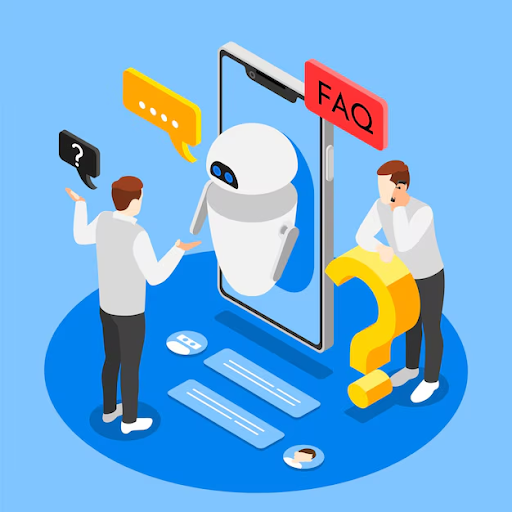
Receiving input: The chatbot receives questions or requests from users through various channels such as websites, applications, and social media.
Natural language processing: The chatbot analyzes the user's question to determine its meaning and purpose. Then, the Chatbot extracts keywords and important information from the question.
Searching for answers: Applying the algorithm, the Chatbot searches for appropriate answers in the pre-programmed database.
Generate a response: The chatbot uses pre-defined templates to create a response or customizes the response based on the extracted information and the context of the conversation.
Provide feedback: The chatbot sends the response to the user.
4. Why is the AI chatbot effective in CRM features?
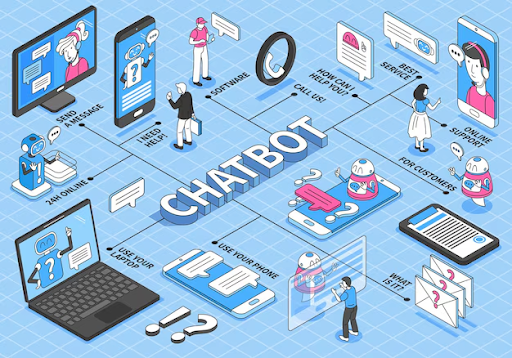
24/7 accessibility
Nowadays, most CRMs are integrated with AI chatbots to support smart messaging available for customer service with 24/7 availability. This feature of AI technology allows the system to receive customer queries and requests at any time of the day. This empowers the CRM system with the ability to manage customer interactions smoothly.
Completely different from traditional support methods, AI chatbots bring a whole new customer service experience. With automation capabilities, the chatbot handles a variety of requests, from simple to complex, helping businesses save time and improve operational efficiency.
Quick ticket management
With the AI chatbot, if you have any queries related to your service or product, you can easily submit a ticket, and with the best possible support, you will receive a suitable solution on your device. With the quick ticket management feature of the AI chatbot in the CRM software, the AI chatbot allows for the classification of customer queries based on their urgency and the nature of the request.
The automated response system of chatbots helps the ticket management team focus on high-priority issues while the chatbot handles various routine queries. AI in CRM software allows businesses to deliver customer satisfaction. The continuous ticket creation and resolution features have made the chatbot intelligent with the power of AI technology, quickly and flexibly.
Personalized interactions of the Chatbot
Modern AI chatbots are created in a way that provides personalized suggestions beyond their own preferences. It can easily analyze transaction history and previous purchases based on customer behavior; these high-tech AI chatbots are specifically designed to meet consumer needs.
For example, if a customer frequently purchases a specific product, the chatbots can provide recommendations, programs, and alerts related to new products within the preferred product range. Such personalized conversations by AI chatbots in CRM software have improved everything in the interactions between customers or clients and the business, thereby enhancing customer satisfaction.
The service comes at no extra cost
Most websites and e-commerce businesses offer free AI chatbots to assist customers or clients. They save costs to bring stability to CRM software and to the customer relationship management unit of the business. CRM is leveraging AI chatbots with top-notch customer support services at no additional cost. Users or customers can easily ask questions for the AI chatbot to respond.
In addition, the AI chatbot of the CRM software can easily handle a large volume of questions received from various customers from different locations. AI technology has helped the digital response platform enhance efficiency with minimal operating costs.
Building customer loyalty through a consistent brand voice
AI chatbots have become an indispensable tool in building and reinforcing brand image. By providing 24/7 customer support services with consistent quality, chatbots help businesses create a seamless and professional customer experience. As a result, customers feel heard and understood, which enhances their loyalty and willingness to recommend the brand to others.
Collecting data and insights
Customer data is very valuable; AI chatbots collect customer data through product-related conversations and then identify potential trends. Integrating various types of customer data into CRM software provides a comprehensive view of customer interactions, allowing businesses to plan and strategize effectively to improve their products/services through data-driven decisions.
5. Benefits of applying AI chatbots in CRM
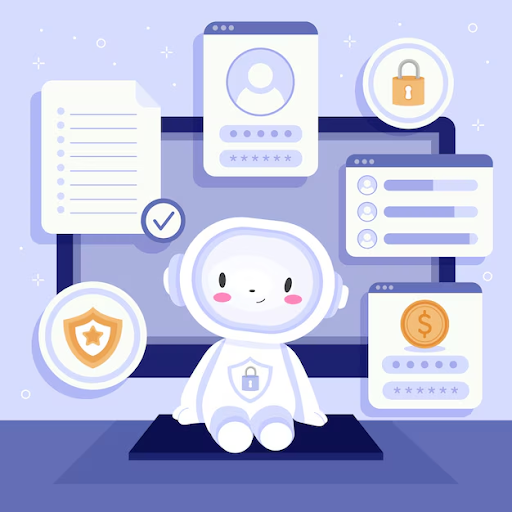
Enhancing customer experience
One of the most prominent benefits of integrating AI chatbots into the CRM system is the ability to enhance customer experience. Instead of having to wait a long time for staff assistance, customers can interact directly with the chatbot 24/7. The chatbot is designed to quickly and accurately answer frequently asked questions, thereby helping customers resolve issues conveniently and efficiently.
Moreover, the chatbot also has the ability to personalize the customer experience. By analyzing historical interaction data, the chatbot can provide product and service recommendations that align with the needs and preferences of each customer. This creates a sense of being cared for and helps increase customer loyalty.
For example, a customer buys a new phone at an online store. If customers have questions about how to use a certain feature, they can easily chat with the chatbot for detailed instructions. The chatbot can also suggest compatible accessories for that phone, making it more convenient for customers to shop."Optimize the workflow"
Optimize the workflow
Employees no longer have to spend too much time on repetitive tasks, but can focus on more complex work that requires creativity and higher-level thinking. Thanks to chatbots, customer requests are handled quickly and accurately, helping to increase the productivity of the business. Automation helps reduce human errors, ensuring accuracy and consistency in the customer service process.
Collecting customer data
When customers interact with the chatbot, they inadvertently provide the business with a large amount of valuable data. Chatbots help businesses collect data on customer behavior and preferences to serve marketing campaigns. Additionally, based on the collected data, businesses can gain a better understanding of customer needs, thereby improving the quality of products and services.
Increase revenue
The application of AI chatbots into CRM systems is not merely about providing information to customers but also plays a crucial role in driving sales. Chatbots can suggest suitable products, encouraging customers to shop. Chatbots can inform customers about special promotions, creating a sense of urgency to encourage immediate purchases.
The chatbot can notify customers when the products they are interested in are on sale or running low in stock, creating an incentive for them to make a purchase immediately.
For example, a fashion store uses a chatbot to suggest outfits to customers that match their style and special occasions. When customers are looking at a dress, the chatbot can suggest additional accessories such as bags, shoes, or other related products. Shopping becomes easier and more convenient, helping customers make quick purchasing decisions.
6. Practical application of AI chatbots in CRM
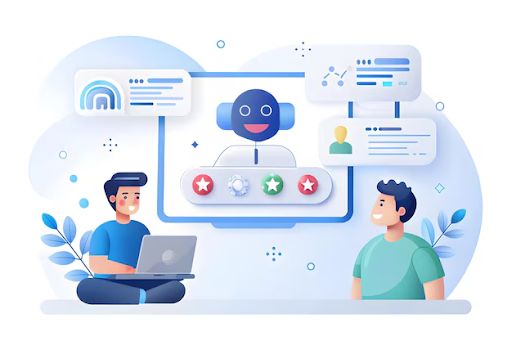
AI chatbots are used in most industries, making the customer service process faster, more convenient, and easier, for example:
Retail sector
- Assist customers in searching for products, comparing prices, and checking order status.
- Consult on product sizes, colors, and materials.
- Answer questions about return and payment policies.
- Marketing new products, promotions.
Customer service
- Resolving complaints, technical support requests.
- Track orders, provide information about delivery status.
- Assist customers in registering for new services.
Bank
- Answer questions about financial products (e.g., credit cards, loans).
- Assist customers with money transfers and bill payments.
- Provide information about foreign exchange rates and interest rates.
Travel
- Hotel bookings, flight tickets.
- Consultation on destinations, travel itineraries.
- Assist customers in the process of booking tours.
Healthcare
- Schedule medical appointments, obtain test results.
- Basic health consultation.
- Support patients in registering for medical examination and treatment programs.
Real-life examples of using AI chatbots in customer care include
Domino's Pizza: Domino's chatbot allows customers to order pizza directly on Facebook Messenger, from selecting the type of pizza and toppings to making the payment.
Sephora: Sephora uses a chatbot to help customers find products suitable for their skin type, hair color, and makeup style.
HSBC: HSBC Bank has deployed a chatbot to assist customers 24/7 with services such as checking balances, transferring money, and blocking cards.
Singapore Airlines: The airline Singapore Airlines uses a chatbot to assist customers with booking flights, changing schedules, and checking flight information.
7. Challenges when implementing AI chatbots
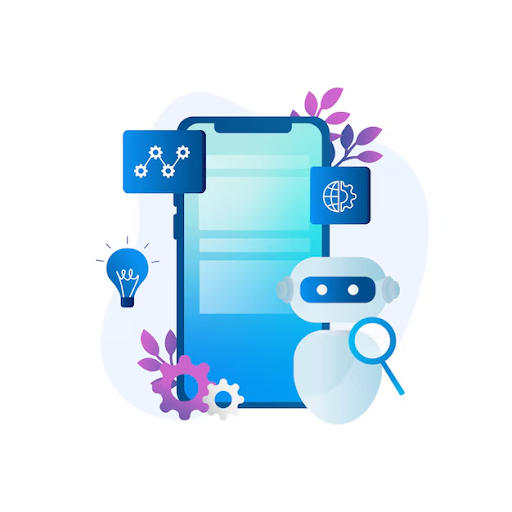
The deployment of AI chatbots brings many benefits, but it also comes with certain challenges. Here are some common difficulties:
Cost
The cost of building and maintaining an AI chatbot can be quite high, especially for small and medium-sized enterprises. Chatbots need to be continuously updated to ensure effective operation, requiring human and financial resources. Invest in hardware and software infrastructure to support the operation of the chatbot.
Data
The collection and storage of customer data must ensure safety and comply with data security regulations. The data used to train the chatbot must be large enough, diverse, and of high quality to ensure the chatbot understands and accurately answers users' questions.
Technique
Building a chatbot capable of accurately understanding and processing natural language (NLP) is a significant challenge, especially for complex languages. Integrating a chatbot into the existing system of a business can encounter compatibility and connectivity issues.
Limitations of AI
Chatbots can misunderstand the meaning of questions, especially when users use ambiguous words or questions with complex contexts. Additionally, the Chatbot cannot yet understand and respond to human emotions perfectly.
8. Conclusion
In summary, AI chatbots bring significant benefits to businesses, including: enhancing customer experience, saving time and costs, improving work efficiency, and collecting valuable customer data. The application of AI chatbots in CRM is a smart decision that helps businesses adapt to digitalization trends and maintain their competitive position in the market.
In the future, as AI technology continues to advance, AI chatbots will become an indispensable tool in every business, helping to reshape the future of the customer service industry.